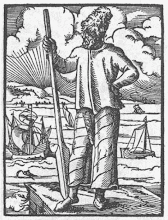It's not a bad song. And I've got to hand it to Arcade Fire; they really know how to push my buttons. I couldn't say what any of their songs really mean, or whether they really mean anything, but I've got a persistent suspicion that they represent cultural and even theological criticism of the sort I'm inclined to hear most happily. And I can't say that about just any band.
Another example: the same album includes a song called "Rococo" (already enough to win over anyone who's spent a few minutes in the vicinity of Karsten Harries or Margaret Blume) which is -- wait for it -- an attack on hipsters.
But I only brought them up because a line from the song embedded above -- "mountains beyond mountains" -- seemed to remind me of something, when I first heard it. And once I'd allowed a little time for the mists of memory to clear, there it was. A restaurant I ate at several years ago in Hangzhou, called the 山外山菜馆,the "Mountains Beyond Mountains Restaurant."
I recall that when I ate there, someone mentioned that the name of the restaurant was taken from a line of a classical poem. And after a brief search through the world's largest repository of Chinese texts, I found it. It's from a poem "Written at an inn at Lin'an" by Lin Sheng, a minor poet of the Song Dynasty (Lin'an is an ancient name for the city of Hangzhou).
 |
| West Lake, outside Hangzhou |
山外青山樓外樓,
西湖歌舞幾時休?
暖風熏得遊人醉,
直把杭州作汴州。
Which may be loosely translated as:
Beyond mountains, mountains; beyond towers, towers.
At West Lake the dancing can go on for hours.
The guests are made drunk by the warm summer wind--
And it's here that you'll find the imperial powers.
(I've taken liberties with the last line; literally, it means "They're treating Hangzhou just as if it were Bianzhou." Bianzhou means Kaifeng, the ancient capital of the Song; Hangzhou was a sort of Paris of China, a city famous for the perfection of its culture and the decadence of its morals, and in Lin Sheng's time the imperial court had for a long time demonstrated a preference for the pleasures of Hangzhou over their official duties.)
Though it may not be immediately apparent to one reading this poem outside of its proper historical milieu, it was intended as a withering critique of the decadence of the Song court.
Which bears comment, because the song by Arcade Fire is intended, as far as I can tell, as a critique of our own decadence: "dead shopping malls rise like mountains beyond mountains."
Is there any connection here? Beyond a coincidence of language, almost certainly not. But there's no doubt that the phrase has now, for me, acquired a special significance, and that when I next drive down the turnpike near Port Elizabeth, and pass the great hulks of the refineries, glorious with safety lamps, and am as suffused with the scent of gasoline as the revelers of Hangzhou were with that of the summer breeze, and remark to myself how strange it is that something so destructive, that represents the so-dubious spirit of the automobile, should be so beautiful, I will very likely think: "mountains beyond mountains."
Such are the pleasures of overeclectic overeducation. But this meaning of the line allows me to enjoy that song far more than (I suspect) its authors intended; which, to add another needless allusion, is further evidence of the merits of the literary criticism of Tlön.


1 comment:
.my my how wonderful.
Post a Comment